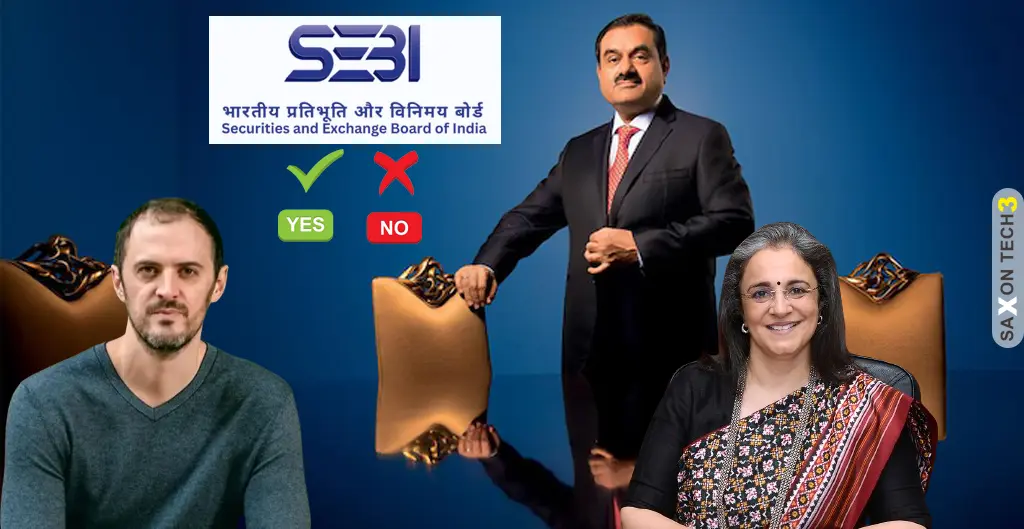Madhabi Puri Buch, the architect of India’s financial watchdog, SEBI, finds herself at the epicenter of a tempestuous controversy. Allegations of a potential conflict of interest, coupled with her alleged investments in an offshore fund shared by the Adani Group, have ignited a firestorm of criticism. This is not merely a personal crisis; it’s a systemic challenge that threatens the very foundation of India’s financial landscape.
The fallout from the SEBI storm has the potential to cause significant turbulence in India’s financial markets. Investor confidence, the lifeblood of any market, is already on shaky ground. A loss of faith in the regulatory framework could lead to a mass exodus of capital, causing a ripple effect throughout the economy.

The consequences of this unfolding drama are far-reaching. Investor confidence, the lifeblood of any market, is teetering on the brink. Questions about the integrity of the regulatory framework are being raised with increasing urgency. And most importantly, the credibility of SEBI itself, the institution entrusted with safeguarding the interests of millions, is hanging in the balance.
Potential Investor Losses
- Market Volatility: The uncertainty surrounding SEBI’s leadership can lead to increased market volatility. Fluctuations in stock prices can result in significant losses for investors, especially those with a higher risk appetite.
- Erosion of Investor Trust: A compromised regulatory body can erode investor trust, leading to a decline in market participation and capital inflow. This can stifle economic growth.
- Impact on Retirement Savings: For millions of Indians, their retirement savings are invested in the stock market. A prolonged period of market instability can severely impact their financial security.
However, every crisis presents an opportunity. This incident can serve as a catalyst for systemic reforms. A strengthened regulatory framework, increased transparency, and enhanced investor education are potential silver linings. But the path to recovery is fraught with challenges. Restoring investor confidence is a marathon, not a sprint. It demands decisive action and an unwavering commitment to transparency and accountability.
Potential Benefits
While the immediate outlook is bleak, there is a silver lining. This crisis presents an opportunity for systemic reforms.
- Strengthened Regulatory Framework: The incident can serve as a catalyst for strengthening SEBI’s governance structure and conflict of interest policies.
- Increased Transparency: The public outcry demands greater transparency in the functioning of regulatory bodies. This can lead to a more accountable and efficient system.
- Investor Education: The crisis can highlight the importance of investor education and awareness. It can encourage investors to diversify their portfolios and adopt a long-term perspective.
How do you see the situation evolving? Do you believe that the government will take decisive action to address the crisis?
